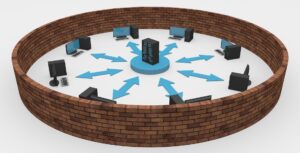
Introducing the Future of Work Conference Panelists, Part One
Pam Sornson, JD
October 18, 2022
The Economic and Workforce Development division (EWD) of Pasadena City College (PCC) is hosting its 4th annual Future of Work Conference on November 8th. This year’s themes revolve around removing barriers to education and increasing job placement and work-based learning opportunities for students of all ages. Panelists come from a variety of economic, industry, and educational organizations, all of whom are working together to rebuild the economy to meet 21st-century goals and aspirations.
The challenges are daunting. The country and the state are experiencing an odd combination of a low unemployment rate and a high volume of unfilled job positions. The factors contributing to those situations are many and varied, as well:
Low unemployment indicates not just that people have found work but also that people are no longer looking for jobs.
The high number of unfilled job openings reflects that at least some of those jobs are unappealing (low pay, challenging schedules, inflexibility) while others require emerging new skill sets that potential workers do not have.
Overlaying both situations are the regulatory, cultural, and bureaucratic barriers that permeate society. The Future of Work conversation on November 8th will address these realities and more.

The Who’s Who of This Year’s Panel, Part One:
Los Angeles County has prioritized workforce development to broaden its industrial and economic foundation. There are seven target industries in the County, which, together, employ hundreds of thousands of workers. These industries and their constituent businesses will drive a significant percentage of the County’s economic growth over the next decade. They will need not just more workers but also well-trained and highly skilled workers. Several leaders actively engaged in LA County’s economic development efforts will be sharing their insights.
Kelly LoBianco, Executive Director, Economic and Workforce Development, County of Los Angeles
In 2021, the Los Angeles County council began developing an internal department directed specifically at workforce development. The then-existing “Workforce Development, Aging and Community Services” department (WDACS) was divided into two branches, and Ms. LoBianco is the inaugural Executive Director of the new workforce development branch. Ms. LoBianco brings 15+ years of government and public sector experience to this newly created role. Her work encompasses aligning the activities of several different county agencies under the auspices of the “workforce development” label, including the departments of strategic economic development, economic and workforce advocacy, small business assistance, and workforce development. She will also lead the County’s effort to connect education, business, and industry resources to the labor force they need to succeed and grow.
Martin Hernandez, Senior Program Associate, Los Angeles County Department of Arts and Culture (LADAC)
Los Angeles County and its 88 cities support a thriving economic and culturally significant nonprofit, artistic, and international community, in addition to being home to the global film, music, and television production sector. In fact, cultural and creative organizations comprise the 4th largest business sector in the County, generating annual revenues of over $110 billion. The LA County Arts and Culture department supports and fosters these thriving enterprises by providing grants, technical assistance, and professional development supports for nonprofits, community programs, and county-wide arts education initiatives. The department’s Cultural Equity and Inclusion Initiative (CEII) ensures that the cultures of all LA county residents are included and celebrated at all levels of all of its activities.
In his role as Senior Program Associate for the LADAC, Mr. Hernandez manages the arts internship program, which is the largest paid internship organization in America. College students earn 400 hours of paid work experience at art-based nonprofits in the region, gaining the expertise and skills they need to lead their own creative organizations into the future. Additionally, he implements and oversees educational and professional development efforts for each cohort group.

Stephen Cheung, Chief Operating Officer and Executive Vice President, Los Angeles County Economic Development Corporation (LAEDC)
While not technically a “county” organization, the nonprofit LAEDC provides research, advocacy, and leadership to LA county’s industrial and business communities. Using company, labor force, and industrial data, the membership of the LAEDC contributes knowledge and resources to enhance and grow countrywide economic opportunities. And the agency is always focused on establishing and maintaining equitable and sustainable systems throughout its economic advocacy programming.
Perhaps its most important contributions to the County’s economic situation are its industry cluster initiatives, which survey and assess an overarching industrial sector’s market and labor demands to create needed connections and solve the problems that develop within and beyond the perimeters of those systems. LAEDC leadership shares its information with business and industry agencies and government departments to ensure all stakeholders can recognize and address both existing and emerging challenges and opportunities. The roster of current LA EDC industry councils includes the E4 Mobility Alliance, the Bioscience Council, the Digital Media and Entertainment Council, and the SoCal Aerospace Council.
Recently installed as the CEO of the LAEDC, Mr. Cheung previously served as that agency’s Chief Operating Officer and Executive Vice President, as well as the President of the World Trade Center Los Angeles, the Secretary General of Foreign Affairs for Los Angeles Mayor Eric Garcetti, and the Director of International Trade for the Port of Los Angeles. He brings his extensive economic, trade, and social services experience to his new role as leader of the LAEDC. He will be offering the closing keynote address at the conference.
Future of Work conference in-person and online attendees will gain deeper insights and a broader perspective about LA County’s economic future because of the depth and bread of the knowledge base shared by these three panelists.


